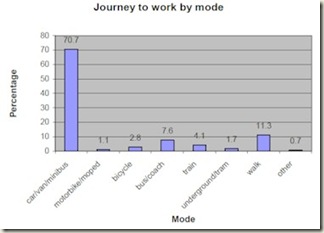The Costs of Commuting
The Transport Studies Unit at the University of Oxford has released a study on “The Costs of Transport on the Environment – The Role of Teleworking in Reducing Carbon Emissions” which looks comprehensively at empirical macro-economic data on workers and commuting. Its conclusions include...
- Empirical studies of teleworking show that it typically results in substantial reductions in car mileage for the day on which teleworking takes place.
- Teleworking can save energy at the worksite – providing working practices change accordingly.
- Teleworkers typically have longer than average commutes but this does not necessarily mean that teleworking encourages more remote living.
- Mobile working has fuelled a recent growth in teleworking.
- The majority of teleworkers are self-employed or unpaid.
- Teleworking has a wide range of benefits for employers, employees and communities . It has been linked with lower absenteeism, improved recruitment and retention, higher productivity, good work-life balance and good quality of life. Teleworkers tend to work longer hours than non-teleworkers, and identify this as one reason for their improved performance, but see reduced stress and better concentration as more important factors. Greater autonomy and flexibility in work planning and performance appears to be a key reason for improved work-life balance. Teleworking has also been linked to better health. There is evidence that teleworkers become more involved in their own communities and spend more on local services.
An example of the research cited is Microsoft’s own Tickbox.net survey (April 2007) on the benefits and profile of remote and flexible working. The study is really a comprehensive review of latest thinking and research in the UK which underscores the imperative and increasingly critical economic benefits to reforming the conventional modes of work and stripping out much of the synchronous commute to our knowledge worker factories.
